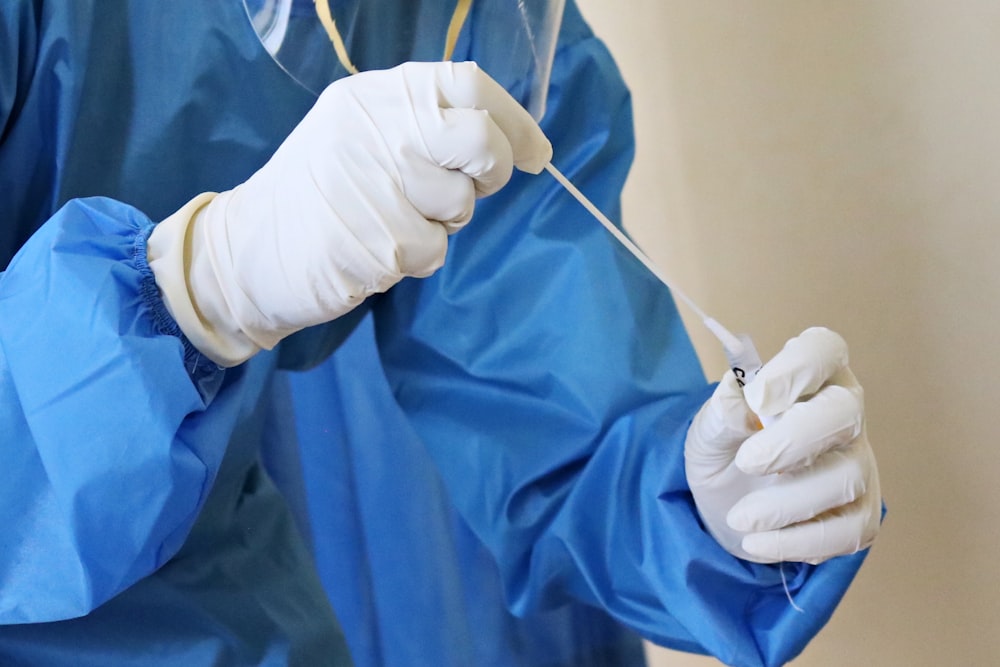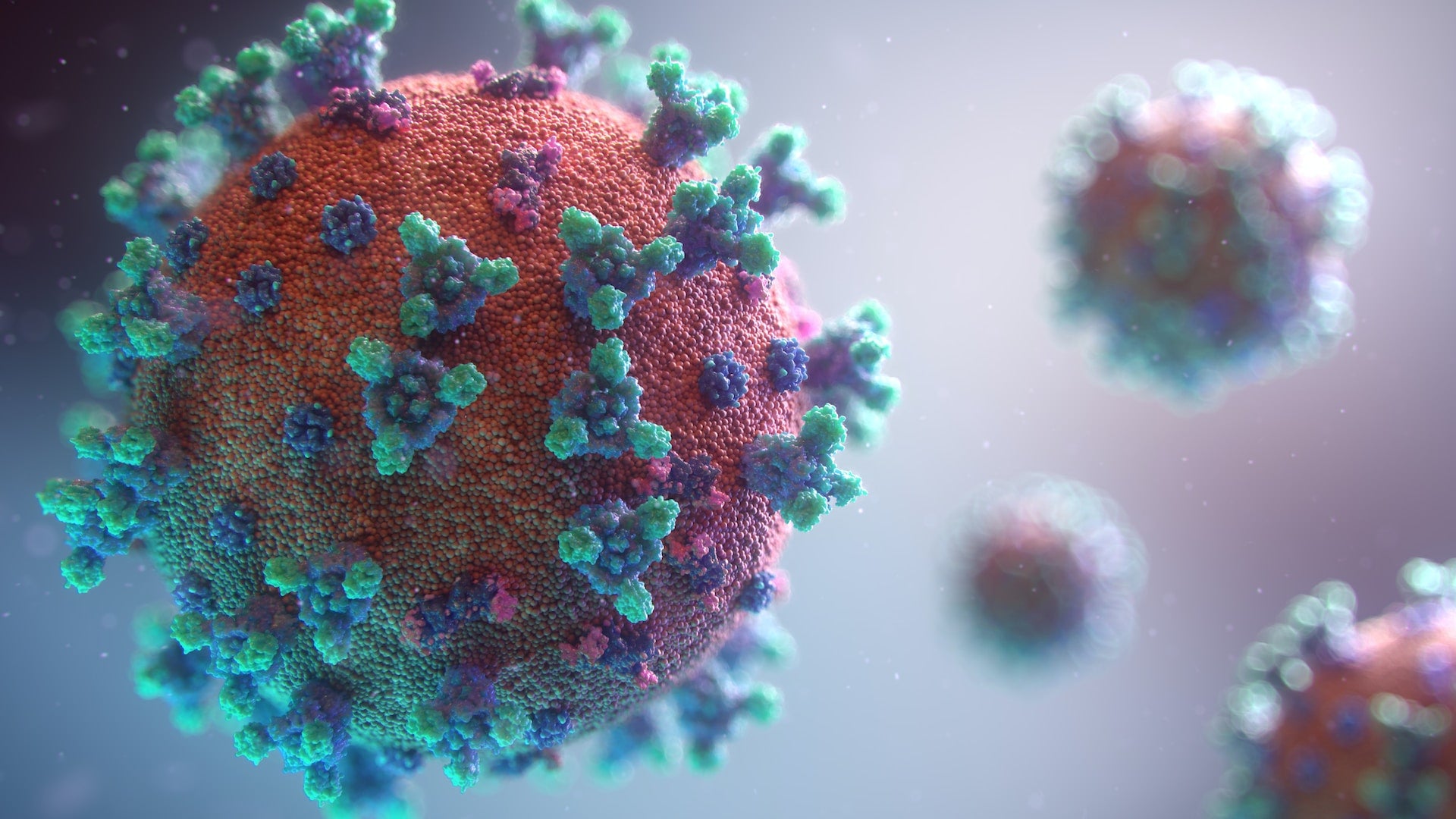COVID-19 no longer dominates the headlines like it used to — but for people with obstructive sleep apnea, this doesn’t mean that the risks associated with the pandemic have completely disappeared.
In fact, a recent study confirms that obstructive sleep apnea can increase your risk for “long COVID.” The United States is still experiencing thousands of new cases of COVID each day, and as this latest research reveals, people with obstructive sleep apnea still need to be aware of how it can affect them.
Study Findings

The new study looked at data on over 2 million adults and 106,000 children who tested positive for COVID between March 2020 and February 2022. In the largest group of adults examined by the researchers, they found that people with obstructive sleep apnea had a 75% higher risk of long COVID than the general population.
In the smaller adult group, the risk increase wasn’t as extreme, but sleep apnea patients still had a 12% higher risk than others. The study also found that women with sleep apnea were at a greater risk of developing long COVID than men.
Lorna Thorpe, PhD, MPH, the senior author of the study, had a few noteworthy takeaways from their findings. She explained, “People with sleep apnea tend to have higher rates of obesity and hypertension and other cardiovascular problems. And these are also common risk factors for severe acute COVID, and have been implicated as risk factors for long COVID. […] Sleep apnea can also result in increased inflammation and a greater propensity to develop infection.”
Essentially, because of the sleep fragmentation, inflammation, and breathing interruptions linked to sleep apnea, people will have a harder time recovering from a COVID infection. They will also be more likely to have a severe infection — and to have symptoms that linger for a long time.
What is Long COVID, Anyway?

Long COVID is a term used to describe COVID-related symptoms and conditions that can last for weeks, months, or even years after someone’s initial COVID-19 infection. It is more common with people who had a severe infection.
Some of the most commonly reported symptoms of long COVID include excess fatigue, fever, trouble breathing, chest pain, cough, “brain fog,” dizziness, digestive problems, joint and muscle pain, and depression or anxiety. Many people also experience changes to their sense of taste or smell.
As with COVID-19 itself, the severity of these symptoms can vary from person to person. However, there is no denying that experiencing these conditions on a continual basis for months can significantly lower your overall quality of life.
Perhaps most noteworthy for sleep apnea patients, long COVID symptoms also include sleep problems. If you are already struggling with poor sleep because of obstructive sleep apnea, the addition of long COVID complications can make it nearly impossible to feel well rested. This can interfere with your daily activities, and even put you at risk of falling asleep while driving or at work.
What Should People With Sleep Apnea Do?

Not surprisingly, the study’s authors recommend that people with obstructive sleep apnea continue to take steps to avoid getting infected with COVID-19. Getting vaccinated and avoiding people who are sick are simple things you can do to stay healthy. If you do get sick, don’t wait to seek medical attention. A healthcare professional can help provide essential treatment for COVID that will reduce your risk for developing long COVID symptoms.
Poor sleep has long been associated with an increased risk of illness because it weakens your body’s immune system. In that sense, the fact that people with obstructive sleep apnea are at a higher risk for long COVID shouldn’t come as much of a surprise.
Your sleep quality can have a big impact on your immune system — and your risk for long COVID and other infections. By using a CPAP machine to keep sleep apnea symptoms in check, you can enjoy higher-quality sleep that boosts your immune system. A CPAP machine will provide a steady flow of pressurized air that helps prevent interruptions to breathing during sleep.
By getting restful, uninterrupted sleep, your immune system will be better equipped to fight off COVID and other potential infections. Your body will also be better able to recover from illness and injury during deep sleep.
Of course, the big problem is that obstructive sleep apnea is widely under diagnosed. Many people who experience sleep disturbances from sleep apnea aren’t aware that they have the condition.
Because of this, everyone should be mindful of common sleep apnea symptoms in themselves or their partner. Snoring, excess fatigue during the day, a morning headache, and feeling tired when you wake up in the morning are common warning signs of sleep apnea. Symptoms such as snoring or gasping for breath during sleep are usually identified by a partner. If you think you might be dealing with sleep apnea, consult with a sleep specialist so you can get a CPAP prescription to start managing your condition.
Get Your CPAP Supplies From No Insurance Medical Supplies
While a CPAP machine can make a big difference for your sleep quality and immune system strength, there’s no denying it can hurt your budget — especially if you don’t have health insurance.
This is where No Insurance Medical Supplies comes in. With our best price guarantee, you can save hundreds of dollars on top CPAP machines and other equipment. With free shipping on most orders over $99 and available financing, you can save even more. You can get the quality rest you need and stay healthy, physically and financially.

